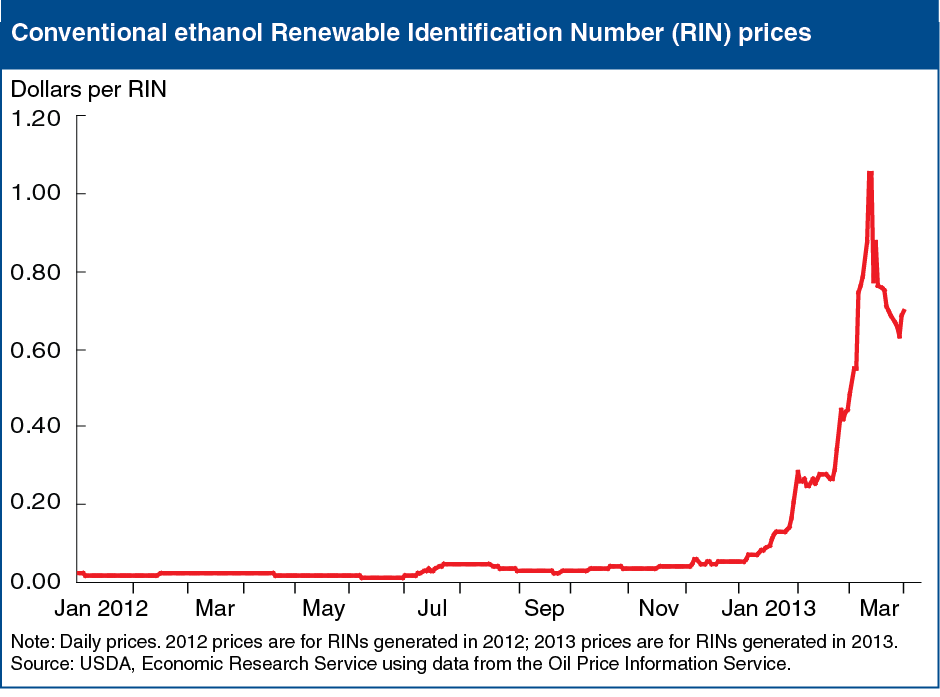High Renewable Identification Number (RIN) prices signal constraints to U.S. ethanol expansion
- by Economic Research Service
- 5/7/2013

Renewable Identification Numbers (RINs) are codes assigned to batches of renewable fuel used to administer the federal Renewable Fuel Standard (RFS), which specifies minimum annual levels of U.S. biofuel consumption. Obligated parties under the RFS use RINs to report qualifying biofuel use to the U.S. Environmental Protection Agency to demonstrate compliance with their annual RFS requirements. After many years of relatively low prices for conventional ethanol RINs, those prices have recently risen sharply because RFS ethanol mandates now exceed ethanol use. This result reflects declining gasoline use and technical constraints on blending more than 10 percent ethanol in U.S. gasoline—the so-called E10 blend wall. The gap between ethanol mandates and ethanol use, together with the anticipated depletion of excess RINs from prior years, are driving up RIN prices. Additional factors that may be affecting RIN prices include uncertainties regarding potential regulatory and legislative actions. This chart appears in “High RIN Prices Signal Constraints to U.S. Ethanol Expansion,” in Feed Outlook: April 2013 (pages 18-22).


